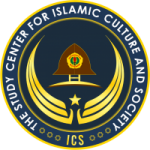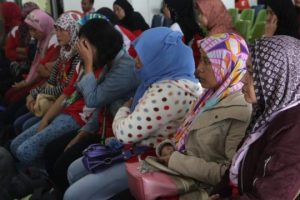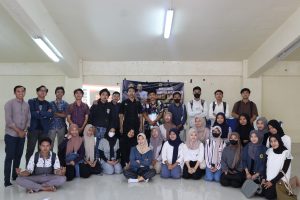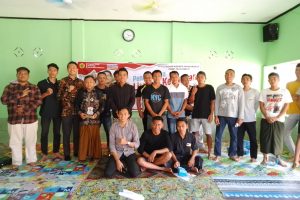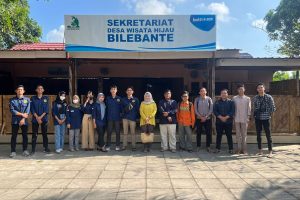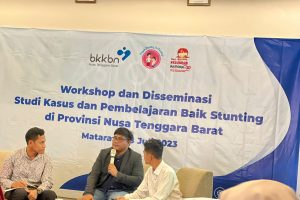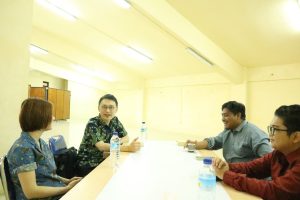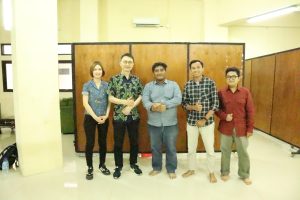Research is one of the ICS programs that concentrates on various issues including radicalism and terrorism, gender, democracy and politics, local customs and culture. The scope of ICS research is not only at the local level, but also nationally and internationally. The ICS research team consists of senior researchers across disciplines to obtain multiple perspectives in studying and researching a research object. ICS is open to collaboration with other research institutions from the government, private sector, universities, and independent research institutes.
There are several issues that ICS concern on:
De-radicalization, Pesantren dan Peace Studies
Radicalism and terrorism have plagued the Indonesian nation and continue to strengthen after the reformation. The 2002 Bali bombings and the 2016 Sarinah bombings show that radicalism and terrorism never die and will continue to grow with different patterns and approaches. Radicalism and terrorism spread across religions, organizations and gender, involving not only men but also women. The case of female suicide bomber Dian Yuli Novi of Bahrun Naim’s network is proof that terrorism has targeted women and is cross-gender. Government and community efforts to fight terrorism and deradicalization efforts are important to be studied further. These efforts should be supported through massive campaigns and publications in the form of books, journal articles or magazines. Thus, people have access to this information and can choose what is best and positive for them in the midst of radicalization and terrorization efforts.
As Islamic educational institutions, pesantren play an important role in the process of deradicalization and counter terrorism by offering inclusive and reformative Islamic learning. The emergence of new pesantrens with hardline ideologies teaching takfirism, shirk, heresy, radicalism and terrorism is a new challenge in the world of pesantren education because it has left the original face of pesantren. Pesantren have recently been claimed to be a hotbed of terrorism and radicalism by Western countries, a place to “brainwash” pilgrims to become prospective brides. If pesantren are not able to return to the original vision and mission of promoting Islam “rahmatan lil alamin”, then these claims and assumptions will become reality. A balancing discourse is needed to counter the entry of the ideology of radicalism and terrorism in pesantren. It is important for pesantren to campaign and teach peace studies, social harmony and diversity.
Gender and Minority
Gender inequality and women’s empowerment is one of the big problems of the Indonesian nation that requires special approaches and strategies, especially in less developed areas. NTB and Lombok in particular are among the areas where the level of women’s participation in development is still lacking, as can be seen from the Gender Development Index (HDI) of 59.07%, as well as awareness of gender equality in public spaces is still very low. At the same time, the construction of gender in Sasak culture does not provide space for women to work and be fully involved, even on the contrary it limits them and puts them in a “holistic” position that is highly respected, revered, glorified, confined, not allowed to work away from parents, and not allowed to mingle widely. This cultural construction of mainstream gender becomes a big challenge when women and men have to adapt to socio-political changes in Indonesia that campaign for freedom and provide equal space and access. There is no other choice for women to be actively involved in the public sphere to survive amidst strong competition and national and global economic pressures.
Gender and women’s studies are important in Lombok and NTB. The number of women who decide to leave to become migrant workers in Malaysia, Saudi Arabia and Taiwan is a turning point in women’s resistance to the cultural and economic pressures that surround women. The problem is when migrant workers experience sexual harassment and violence in the countries where they work. Meanwhile, at home, Sasak and Samawa women have not been maximally protected, as seen by the high number of cases of violence that befall them in the household. Their low human resources and skills are unable to make them able to compete well and obtain decent work. The status of the “city of a thousand widows” in NTB with the number 4 national rank after Sumetera, Aceh and Sulawesi with 58.60% is a big homework (PR) for the community and local government to immediately find the right solution.
Democracy, Regional Autonomy, and Local Politics
Democracy, regional autonomy and local politics are issues that will be researched by ICS with the aim of seeing the level of democratic growth that develops in the regions. Democracy in the sense of the political system has undergone significant changes in Indonesia after the reformation, the implementation of regional autonomy and decentralization laws. This change in political policy has had a broad impact on political behavior as well as the socio-economic life of the community. The level of participation of local figures in the democratic party is very high, almost all regional heads ranging from governors, mayors and heads of districts come from native sons. This research becomes important when primordialism and Sara politics strengthen, at the same time the human resources of native sons have not shown good qualifications.
The high level of conflict and division between citizens in the regions in each election is a crucial issue to be studied. In some regions, the elections have gone well, but conflict and violence still color the elections. Immature democracy and a weak culture of acceptance of differences and diversity position the community in a dangerous situation because it is prone to violence and social divisions. Polarization in society always appears both in elections and in regional elections so that assistance and political education are needed for the community.
Adat and Local Culture
Lombok is very rich in traditions, customs, and culture that are still maintained until now. The uniqueness can be seen in the practice of local traditions such as marriage, circumcision, death, nyale smell, presian, gendang beleq art, and commemoration of Islamic holidays such as maulid celebrations, isro’ mi’roj, nuzul al-Quran and others. With this rich tradition, Lombok has become one of the favorite research sites for local, national and international researchers. Many international researchers focus their research on Lombok and publish it in the form of books and journals. ICS sees the importance of ongoing research on local customs and cultures that have not been explored by many outside researchers. The meaning of tradition and culture by insider researchers will be different from outsider researchers, therefore strengthening the capacity and productivity of research for local researchers is urgent as a comparison to the research results of outside researchers.
The uniqueness of Sasak culture is not only seen from the aspect of customs and culture, but also from the historical aspects that shape the civilization of the Sasak tribe. The maturity of Sasak culture was severely tested by the arrival of migrant groups and colonizers such as Balinese, Dutch, Chinese and Japanese who directly influenced the local culture of the Sasak people. Cultural assimilation between migrants and indigenous Sasak gave birth to a unique cultural combination. The most visible and prominent is the assimilation between Balinese and Sasak culture that goes through elements of art, ritual and worship. It is difficult to distinguish between Sasak and Balinese art, and the sharing of Muslim and Hindu places of worship shows the level of inclusiveness and openness of the Sasak tribe. The Wetu Telu sect is one evidence of the practice of syncretism between Islam, Buda, Hinduism and the local religion of the ancestors of the Sasak people.
